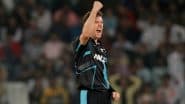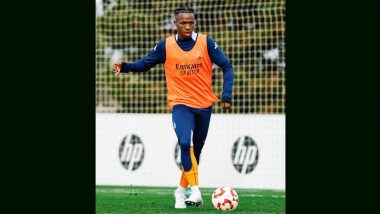Johannesburg, Nov 3 (AFP) Victory at the Rugby World Cup came as a huge relief to South African sport followers after a string of woeful performances by the national cricket and football teams.
The Springboks used forward power to subdue England, then let flying wingers Makazole Mapimpi and Cheslin Kolbe loose to run in the tries that sealed a 32-12 final triumph Saturday.
Supporters of the national rugby team were hopeful of victory, but no one dared believe they would finish 20 points ahead of a side that crushed trophy-holders New Zealand a week earlier.
South Africans celebrated a third Rugby World Cup title in sport clubs, bars and restaurants against a backdrop of frustration at failures in the other two widely followed sports.
In India last month, the cricketers suffered back-to-back innings Test losses for the first time since the 1935-36 season against Australia.
Before those humiliations, South Africa suffered a 203-run defeat in the first of three Tests on the sub-continent.
A disastrous year for the Proteas also included a 2-0 home Test series beating by struggling Sri Lanka, who had arrived in the republic as no-hopers. Worse was to follow with South Africa losing five of eight matches at the Cricket World Cup in England to finish seventh in the 10-nation tournament.
"These are the worst of times for cricket in our country, or at least for the time most of us have been alive," wrote Sunday Times cricket columnist Telford Vice. Football is by far the most popular sport among the 57 million South Africans with the domestic, African and European versions followed avidly.
- Grateful -
============
But the national team that drew 85,000 spectators to a pre-2010 World Cup friendly against Colombia in Soweto would be grateful to have a quarter of that support now.
When apartheid-induced isolation ended in 1992, South Africa rapidly developed into a continental powerhouse.
They hosted and won the 1996 Africa Cup of Nations and qualified for the 1998 World Cup in France, where they fell to the hosts before drawing with Denmark and Saudi Arabia.
Bafana Bafana (The Boys) came second and third in the next two Cup of Nations and secured a second straight trip to the World Cup, beating Slovenia but failing to make the knockout phase.
South Africa failed to build on those achievements, however, and the number of footballers from the republic playing in the major European leagues dwindled alarmingly.
Today, no South African commands a first team place in an English Premier League, Spanish La Liga, Italian Serie A or German Bundesliga team.
The country is ranked 13th in Africa, behind nations like the Democratic Republic of Congo, Mali and Burkina Faso, who have far fewer resources and facilities.
"We were happy to be there and just wanted to learn," was the startling comment from midfielder Hlompho Kekana after a limp last-eight exit at the 2019 Africa Cup of Nations.
Why, many South Africans wondered, are the national team still learning when they have been competing internationally for 27 years. AFP
(This is an unedited and auto-generated story from Syndicated News feed, LatestLY Staff may not have modified or edited the content body)













 Quickly
Quickly




















